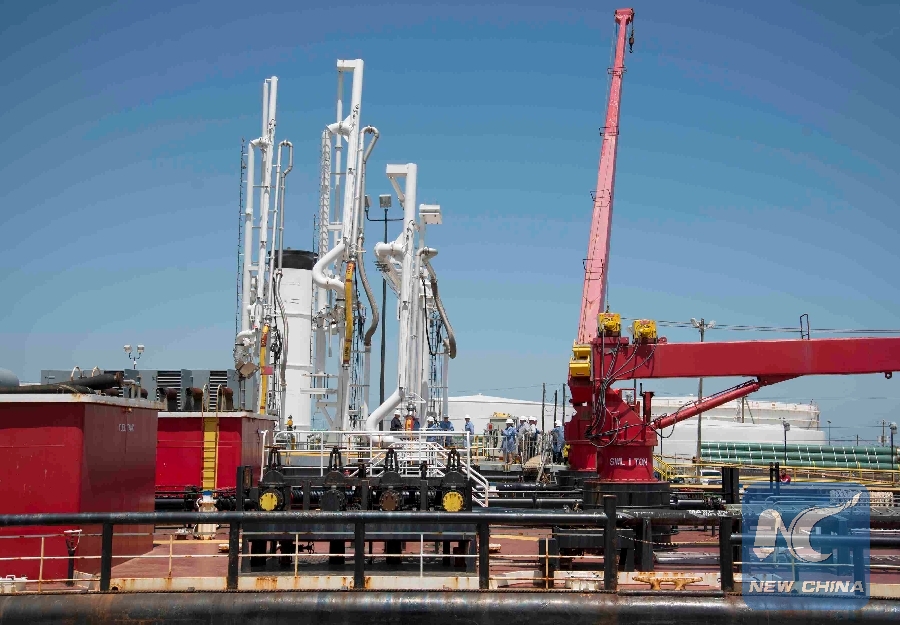
File photo shows the newly expanded crude dock at the Port of Corpus Christi, Texas, April 10, 2014. (Xinhua/REUTERS)
LAREDO, the United States, Sept. 21 (Xinhua) -- The tariff dispute between the United States and its trading partners may potentially affect the port trade, causing an increase in the construction costs, a U.S. port official said.
John LaRue, the executive director of the Port of Corpus Christi, made the remarks at a two-day annual symposium which closed Thursday in Laredo, a city built up along the border between the United States and Mexico.
In the North American Logistics & Manufacturing Symposium, LaRue told Xinhua that his port has a lot of new industrial plants under construction. The tariffs, he said, especially the steel tariffs, will increase the costs.
When talking about the ongoing collaboration with China, LaRue said the port has been working closely with the northern Chinese city of Tianjin, mainly with Tianjin Economic-Technological Development Area and Tianjin Pipe Group Corporation.
"We have a memorandum of understanding with the Tianjin port to try to share, not physical properties but intellectual, and work on different activities that we both do as ports," LaRue said.
"We see the potential for more growth between our port and our community and China especially Tianjin," he said, with a positive attitude toward the future collaboration with China.
"I know things are difficult right now but we're hopeful that they will get resolved," LaRue said. "We see the opportunity for more products coming in through our port from China."
Port of Corpus Christi is the fourth largest port in the United States by tonnage, well over 120 million tonnes a year, according to LaRue. It is located on the western side of Gulf of Mexico with a 36-mile (57,936-meter) deep channel and serves as a major gateway to international and domestic maritime commerce, the port's official website said.
Seeing the ongoing and future trade activities, LaRue said they have added a lot of new docks in the last four or five years to handle products related to energy.
With the theme of "Supply Chains in the New Global Reality," this year's symposium focused on the impact of the rapidly changing political climate on international trade, transportation and manufacturing sectors in the short and long term.
Around 200 politicians, businessmen and scholars from the United States, Mexico and Canada attended the symposium.

